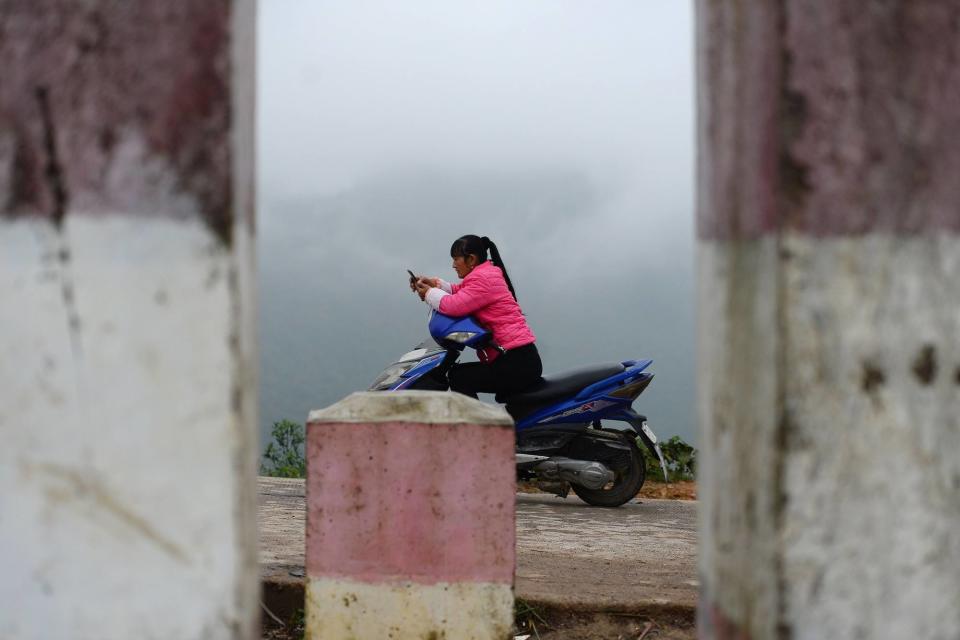China-Vietnam deal points to common security worries about Western forces: analyst
A newly signed security deal between China and Vietnam underscores their common concerns about "hostile" external forces and the need to safeguard internal stability, according to a Chinese analyst.
At the end of Chinese President Xi Jinping's visit to Vietnam this week, Beijing and Hanoi said in a statement that they had agreed to step up defence and security cooperation, especially on "regime security and institutional security".
It was the first time the two countries had referred to regime security in such a joint statement, and it came just three months after a visit to Hanoi by American President Joe Biden that raised US-Vietnam ties to the highest level and stoked unease in Beijing.
Do you have questions about the biggest topics and trends from around the world? Get the answers with SCMP Knowledge, our new platform of curated content with explainers, FAQs, analyses and infographics brought to you by our award-winning team.
Under the agreement announced on Wednesday, the two countries will engage in more high-level exchanges between their law-enforcement agencies and share intelligence to protect regime security.
"[Both countries should] boost intelligence cooperation and share experience in the issues of anti-interference, anti-secession, prevention and fighting of 'peaceful evolution' and 'colour revolution' of hostile and reactionary forces," Hanoi and Beijing said in the joint statement.
The commitments were part of a broader assessment of relations in which they described each other as sharing "similar political regimes, a compatible ideology and belief, a similar development path, a shared vision and future".
Song Zhongping, a military commentator and former instructor with the People's Liberation Army, said regime and government security were grave concerns, and both China and Vietnam considered it critical to avoid any "infiltration to their political system".
"Both China and Vietnam share the worries that hostile Western forces will want to subvert their socialist system, giving rise to the need to step up the exchange of intelligence information in this regard," Song said.
Dylan Loh, an assistant professor of foreign policy at Nanyang Technological University in Singapore, said the fact that the countries had a similar view on regime security was no surprise.
"[Beijing and Hanoi] as single party dominant, communist regimes, political legitimacy and longevity will never be far from their thinking," Loh said.
The broad security cooperation reached during Xi's visit will also cover fighting terrorism, telecoms fraud, border control and human trafficking, and the hunt for fugitives.
Song said this also reflected regime security concerns.
"Illegal migrants may pose a threat to national security, and may also become an important channel for the infiltration of foreign elements into the two countries," he said.

A woman is seen on the Chinese side of a concrete fence separating China from Vietnam's Ha Giang province. Many people in this part of Vietnam have a story about human trafficking; women have been kidnapped or sold across the border to become unwilling brides in China. Photo: AFP alt=A woman is seen on the Chinese side of a concrete fence separating China from Vietnam's Ha Giang province. Many people in this part of Vietnam have a story about human trafficking; women have been kidnapped or sold across the border to become unwilling brides in China. Photo: AFP>
Loh said cooperation on illegal immigration was a "natural offshoot" of Beijing's domestic priorities to address transnational crimes and bring criminal fugitives home.
He also said Hanoi had effectively reassured Beijing that its ties with Washington would not come at China's expense.
In addition, Xi's trip helped to ease tension in one major area where China and Vietnam were at odds, he said.
"The visit and warm words will help bring down the temperature in their disputes in the South China Sea and both would want to boost their digital and economic ties to keep their economy churning," Loh said.
Song agreed that the security focus of the joint statement reflected Beijing and Hanoi's desire to maintain a stable external security environment, including the South China Sea.
Such a broad perspective about security could set guardrails for tensions between China and Vietnam stoked by nations outside the region, he said.
This article originally appeared in the South China Morning Post (SCMP), the most authoritative voice reporting on China and Asia for more than a century. For more SCMP stories, please explore the SCMP app or visit the SCMP's Facebook and Twitter pages. Copyright © 2023 South China Morning Post Publishers Ltd. All rights reserved.
Copyright (c) 2023. South China Morning Post Publishers Ltd. All rights reserved.

 Yahoo Finance
Yahoo Finance 